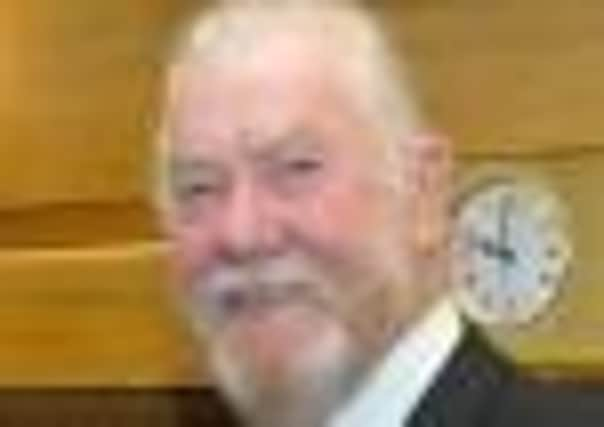Vernon Smith


This aspect of his life was acknowledged in 2000 when, as a member of the Company of Cutlers in Hallamshire, he was appointed Master Cutler, and Sheffield Hallam University awarded him an honorary doctorate.
He was born in Penn, near Wolverhampton, but moved with his parents, as a small child, to Stourbridge in Worcestershire, which became his true home town. He was educated at King Edward VI Grammar School in Stourbridge, a keen sportsman and an enthusiastic member of the school’s Cadet Corps. He was also a Boy Scout, earning a King’s Scout award in 1951.
Advertisement
Hide AdAdvertisement
Hide AdWhen he left school, he joined the staff of the local steel company, Richard Thomas and Baldwins Limited, where he began training to become a metallurgist, gaining his qualifications at Birmingham College of Technology, now Aston University.
He was then called up for National Service and was commissioned into the Royal Engineers, seeing service in the UK and in Malaya between 1957 and 1959. He maintained his enthusiasm for military life for many years through the Territorial Army, gaining the rank of major and commanding 143 Plant Squadron RE (TA).
On returning to civilian life after National Service, he held a number of positions with West Midlands steel producers, moving into general management and his first company directorships.
In 1978 he moved to Sheffield to become works director of Hadfields, which subsequently led to his appointment as divisional chief executive of a diverse group of engineering companies, based mainly in the north of England.
Advertisement
Hide AdAdvertisement
Hide AdHe joined British Steel (Industry) Ltd in 1986, the agency set up to help the economic regeneration of areas hit by the steel works closures of the 1970s – now UK Steel Enterprise Ltd – and was made managing director in 1989.
In an interview with the Yorkshire Post marking the agency’s 21 years Mr Smith, who understood and well remembered the mood of the 1970s, answered trade union criticism of the organisation as conscience money, by saying of its work: “It was a question of accepting some responsibility for what happened to steelworks areas after closures.
“If a job has to be done, if technology moves on and you don’t need the people you had before, you can’t bury your head in the sand and ignore the consequences.”
He added that new technology could not be embraced and people kept on as well, because any improvement in competitiveness would be lost. “This is where the responsibility comes into play,” he said.
Advertisement
Hide AdAdvertisement
Hide AdWhen he retired in 2001, he remained a member of the board.
Mr Smith was a Fellow of the Institute of Materials, of the Institute of Management and of the Institute of Business Advisers.
In retirement he spent much of his time on public service work and charities, including The Third Age Challenge Trust, Whirlow Hall Farm Trust, Open Industry – Yorkshire and Mary Stevens Hospice in Stourbridge.
He was a lay member of Sheffield University’s Council, and in 2000 was awarded an Honorary Doctorate by Sheffield Hallam University for his contribution to the regeneration of the country’s industrial manufacturing base, particularly in Sheffield, and his work with the School of Engineering and its students, many of whom benefited from placements at British Steel (Industry) when Mr Smith was managing director.
Advertisement
Hide AdAdvertisement
Hide AdHe returned to live in Stourbridge in 2004 and pursued his leisure interests in rugby football, shooting and fishing.
Mr Smith is survived by his wife, Patsy, two sons, Robert and Michael, and four granddaughters.